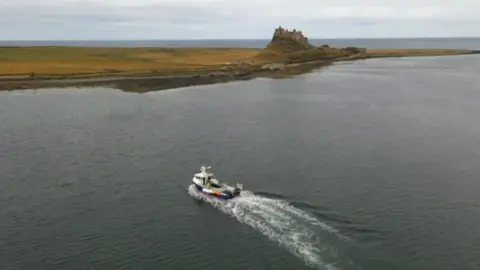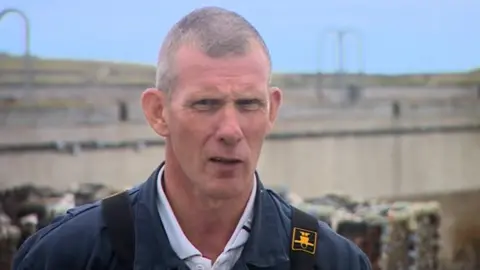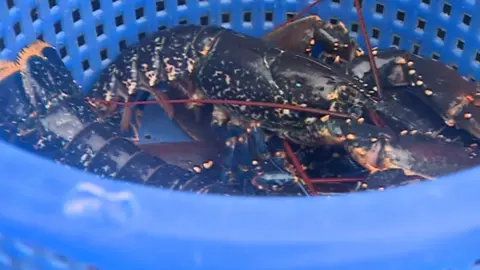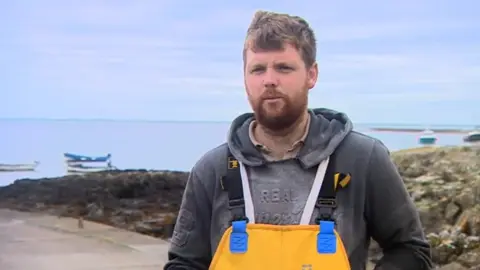Fishermen fear sea rewilding plan for Northumberland islands
 BBC
BBCFishermen working out of Holy Island Harbour have said they are are concerned about government plans to ban all fishing and re-wild the sea.
The government said the proposed area was rich in more than 850 species of seabirds and fish, of which 40 have been identified as threatened.
It said banning commercial and recreational fishing would allow the protection and recovery of marine life.
But fishermen said they would be forced to work from nearby busy harbours.

Richard Ward, who has fished for lobster and crabs out of the harbour since leaving school, said he was worried about the future.
He said: "Fishing is all I've known since leaving school, with my business partner we've worked blood, sweat and tears to build up the fleet we've got now and to hear we might not be able to fish here anymore is mind-boggling."
The Department for Environment, Food and Rural Affairs (Defra) is proposing the area becomes a Highly Protected Marine Area (HPMA).

It would cover the area from Goswick to Bamburgh, and includes habitats on the north shore of Lindisfarne (Holy Island), Budle Bay and the outer group of the Farne Islands, but excludes Inner Farne.
The area overlaps with other protected areas in Northumberland.
Defra admitted the plans could see fishermen displaced to other ports along the coast, which it said had "the potential to create conflict between fishers in this fleet due to the lack of space to place additional pots".

Fellow Holy Island fisherman Jordan Richardson said: "If we moved all our lobster pots, there are five fishing boats here to Seahouses which has seven to 10 boats fishing there, then that's going to be 4,000 more creels fishing out of one harbour, so how will that be viable? All those creels in one small area?"
A public consultation is under way until 28 September.
It is also proposed the area around Allonby Bay, in the Irish Sea in Cumbria between Maryport and Mawbray, is also protected by an HPMA.
Defra said a range of species including crabs, fish and seabirds would benefit from the protection it would give to the rocky habitat, honeycomb reefs and blue mussel beds.

Follow BBC North East & Cumbria on Twitter, Facebook and Instagram. Send your story ideas to [email protected].
